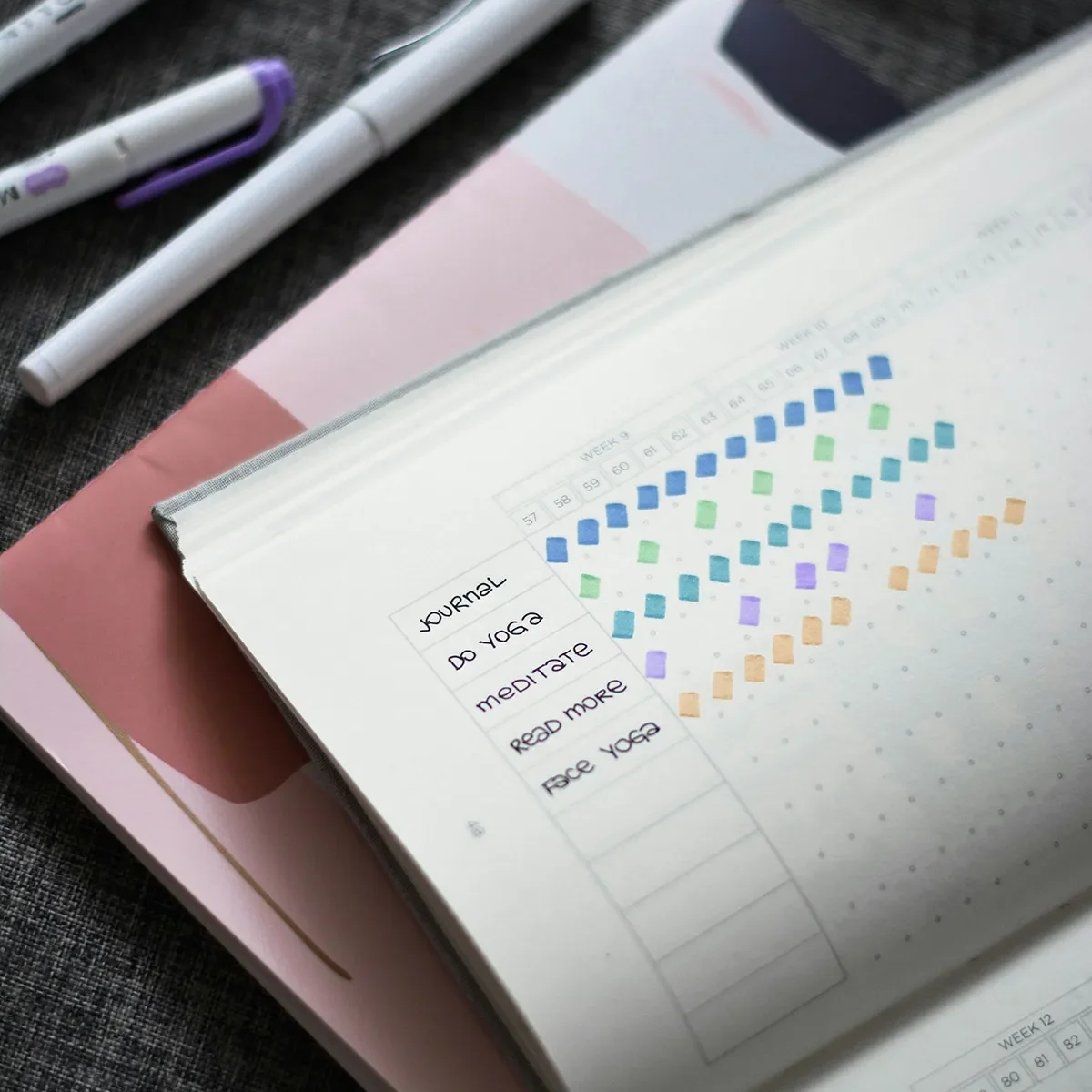Why Building Better Habits Finally Clicked for Me
I’ve lost count of how many times I’ve told myself this is it — this is the week I finally start waking up earlier, eating better, or writing daily. And then… I don’t. Or I do it for a few days, and it quietly fades away like it never happened.
It’s not that I didn’t want to change — I just couldn’t seem to make it stick. The “motivation high” would fizzle, and I’d fall back into old rhythms that felt way too familiar. Eventually, I realized it wasn’t about trying harder — it was about trying smarter.
This post is me putting all of that learning into words. If you’ve ever struggled to build habits that last longer than a week (hi, me too), this is for you. I’ll walk through what’s actually helped me shift from wishful thinking to something that feels sustainable and real.

1. Start Small. Like, Ridiculously Small.
One of the biggest mistakes I used to make was trying to overhaul my whole life overnight. I’d decide I was going to work out every day, drink 2 liters of water, journal, read, and meditate — all starting Monday. Predictably, by Thursday I was exhausted and back to scrolling TikTok in bed.
What actually worked was making the habit so tiny, I couldn’t really not do it. Like two minutes of stretching before bed. Or writing one sentence in my journal. These small wins built trust with myself — and that trust grew into momentum.
I started with a rule that I had to floss just one tooth a night. It was so silly it almost felt like cheating — but somehow, it worked. Within a week I was flossing normally again, without resistance.
It’s not about the size of the habit. It’s about showing up for it consistently enough that your brain starts to believe you.

2. Link Habits to Something You Already Do
I learned this from habit expert James Clear, and it changed everything: stack your new habit onto something you already do regularly. It’s like hitching a ride on an existing routine.
For example, brushing my teeth at night has become my reminder to stretch. As soon as I finish, I do a quick 3-minute stretch before bed. Since brushing is already automatic, it made the new habit easy to remember and stick with.
This method works because your brain isn’t trying to invent a whole new pattern from scratch. It’s just attaching something new to something familiar.
Another one I use: while I wait for my coffee to brew in the morning, I do a one-minute breathing practice. That tiny moment of calm helps me start the day grounded instead of grabbing my phone and spiraling into chaos.
3. Make It So Easy, You Don’t Need Motivation
I used to rely on motivation. Spoiler: it’s flaky. What helped me build good habits wasn’t inspiration — it was convenience. I made the habits so easy and accessible that even tired, cranky, overwhelmed me could do them.
Some things that helped:
- Leaving my journal open on my pillow so I’d write a sentence before bed.
- Keeping a full water bottle on my desk so I’d sip without thinking.
- Laying out my workout clothes the night before so they were the first thing I saw.
It sounds almost too simple, but the easier it is to do the thing, the more likely I am to actually do it.
One small change that helped me drink more water? I bought a cute water bottle I actually liked using. That was it. That was the hack.

4. Track It
I resisted habit tracking for a long time because it felt like pressure. But when I reframed it as a gentle check-in — not a performance — it actually helped.
Now I just mark a little ✅ in my planner on the days I do the thing. No guilt if I miss a day. No streak obsession. Just a visual reminder that I’m trying, and that’s enough.
Tracking helps because it gives your brain proof. Proof that you’re becoming someone who shows up. Even imperfectly.
One month, I tracked how often I meditated, and I was shocked to see I actually did it 18 times. Without the tracker, I would’ve assumed I failed. Turns out I was doing better than I thought — just not perfectly. And that was kind of freeing.

5. Revisit Your “Why” Regularly
Honestly, this is the piece I forget the most — but it matters. If your habit doesn’t feel meaningful, it’s hard to keep showing up. When I take time to reconnect with why I wanted to start, I’m more likely to stick with it.
Your “why” doesn’t have to be deep or dramatic. Maybe you want to walk daily because you feel less anxious when you do. Or you want to journal because it clears your head. That’s enough.
Write your “why” somewhere visible. Remind yourself often. On the boring days and the hard ones — it helps to remember this is about the kind of life you want to live.
6. Let It Be Imperfect
Here’s the truth: no habit is going to be perfect. You’re going to miss days. You’ll go through slumps. That doesn’t mean you’ve failed — it means you’re human.
The goal isn’t a perfect streak. The goal is to keep returning.
What’s helped me is focusing on identity over outcome. Instead of saying “I need to journal every day,” I tell myself, “I’m someone who journals.” That way, even if I miss a day (or three), it doesn’t break the identity — I just come back to it.
It’s the returning that builds trust. The gentle, quiet choice to keep going — even when it’s messy.

Final Thoughts
For me, learning to build better habits has been less about discipline and more about kindness. The kinder I am to myself in the process — the more I simplify, anchor, and allow imperfection — the more sustainable it feels.
I used to think change had to be dramatic and hard. Now I believe real change is small, gentle, and rooted in who you’re becoming.
Some of these habits I still mess up. Some I’ve fully integrated. But the difference now is I don’t quit when I slip. I keep showing up. Slowly, imperfectly — but still moving forward.
Which habit have you been wanting to build — and how could you make it 80% easier to start?




